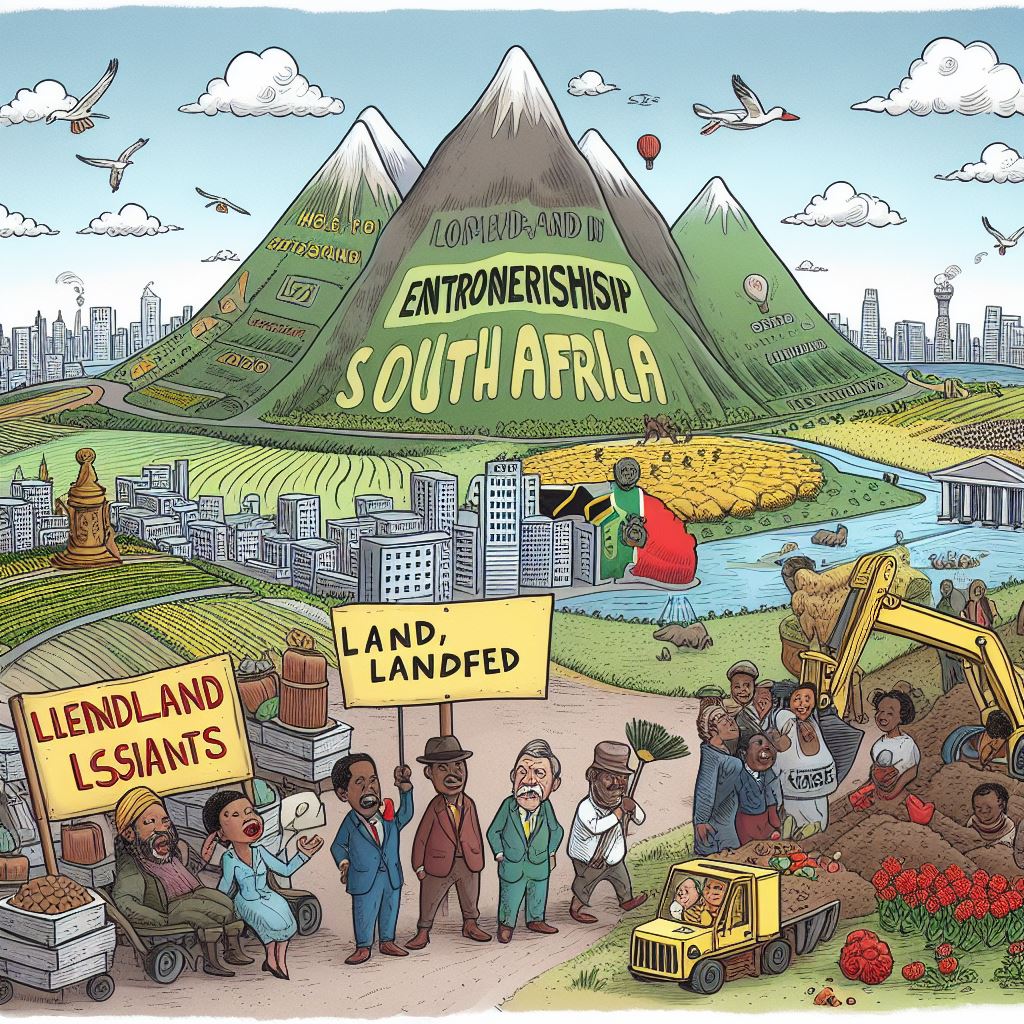South Africa, a nation with a rich and diverse economic landscape, relies on various factors of production to drive its economic activities. These factors, namely land, labor, capital, and entrepreneurship, play a pivotal role in shaping the country’s economic structure. In this article, we will explore each factor and delve into the remuneration associated with them in South Africa.

1. Land as a Factor of Production
Land, often considered a primary factor of production, encompasses all natural resources available for economic activities. In South Africa, the significance of land extends beyond mere physical space; it includes minerals, water, and agricultural potential. Historically, the issue of land ownership has been a contentious one, stemming from the legacy of colonialism and apartheid.
Remuneration in Land Ownership
Land ownership in South Africa has undergone significant transformation in recent years. The government has implemented land reform policies to address historical imbalances, with the aim of ensuring equitable access to land. In some cases, land expropriation has been proposed to rectify historical injustices and promote inclusive economic development.
Remuneration for landowners can take various forms, including compensation for expropriated land or income generated from agricultural activities. The challenge lies in finding a balance between addressing historical injustices and maintaining agricultural productivity, as well as incentivizing sustainable land use.
2. Labor and Its Remuneration
The South African labor force is diverse, representing a blend of skilled and unskilled workers across various sectors. The historical context of labor in South Africa is shaped by the apartheid era, where discriminatory practices limited opportunities for certain racial groups. Today, the country faces the challenge of addressing unemployment, skills gaps, and ensuring fair remuneration for workers.
Remuneration in the Labor Market
Wage disparities remain a significant issue in South Africa. The minimum wage has been introduced to establish a baseline for fair remuneration, yet challenges persist in enforcing it across all sectors. Skilled workers generally command higher wages, contributing to income inequality.
Trade unions play a crucial role in advocating for better working conditions and negotiating fair wages for their members. Collective bargaining agreements often determine remuneration packages, taking into account factors such as skills, experience, and the cost of living.
In recent years, there has been a growing emphasis on addressing gender pay gaps and promoting diversity in the workplace. Government initiatives and corporate policies aim to ensure that remuneration is not only fair but also inclusive.
3. Capital: Investments and Financing
Capital, in the context of production, refers to the financial resources used to acquire other factors of production. In South Africa, access to capital has historically been uneven, with barriers preventing equitable participation in the economy. The availability of capital significantly influences economic growth and development.
Remuneration in Capital Investments
Investors and capital owners expect returns on their investments, whether through dividends, interest, or capital gains. The South African financial system provides various avenues for individuals and institutions to invest their capital, including the stock market, bonds, and real estate.
Remuneration in the form of interest is common for financial investments, while shareholders in companies receive dividends. However, the challenge lies in ensuring that capital is distributed in a way that benefits the broader population and contributes to sustainable economic development.
Government policies, such as incentives for small and medium enterprises (SMEs) and efforts to promote financial inclusion, aim to broaden access to capital. The development of a robust venture capital ecosystem can also play a pivotal role in fostering innovation and entrepreneurship.
4. Entrepreneurship: Driving Economic Innovation
Entrepreneurship is a critical factor that drives innovation, creates employment opportunities, and contributes to economic growth. In South Africa, promoting entrepreneurship is essential for addressing unemployment and fostering a dynamic and competitive business environment.
Remuneration for Entrepreneurial Endeavors
Entrepreneurs often take on significant risks in pursuit of their business ventures. Remuneration for entrepreneurship comes in various forms, including profits, business growth, and the creation of employment opportunities. Successful entrepreneurs may also benefit from the increased value of their enterprises and potential exit strategies, such as selling their businesses.
Government initiatives, such as funding programs, mentorship opportunities, and regulatory support, aim to create a conducive environment for entrepreneurship. Access to funding is a critical factor for aspiring entrepreneurs, and efforts to streamline bureaucratic processes can further facilitate business startups.
In addition to financial rewards, successful entrepreneurs often find fulfillment in contributing to societal development. Social entrepreneurship, in particular, has gained traction, emphasizing the positive impact of businesses on communities and the environment.
Conclusion
In South Africa, the factors of production – land, labor, capital, and entrepreneurship – are intricately connected, shaping the nation’s economic landscape. Remuneration for each factor reflects the complex history and challenges faced by the country. Land reform efforts, labor market dynamics, access to capital, and the promotion of entrepreneurship are essential components of the ongoing journey towards a more inclusive and equitable economic system in South Africa. Balancing the interests of various stakeholders while fostering sustainable development remains a continuous challenge, requiring thoughtful policies and collective efforts.
